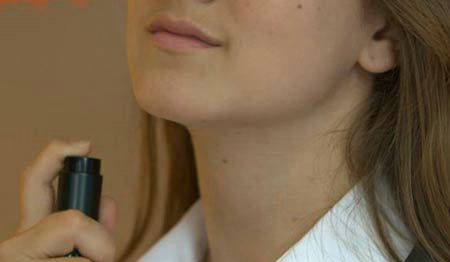厕所文化
|
厕所文化(Toilet Culture) Everybody staying at a certain place long enough needs to know where the toilet is. I tried to find one when I first visited the Divinity School Library, the oldest school in Yale University: I tried to find the signs with words such as WC, Ladies, Bathroom, and Washroom. I used all the knowledge I had about toilet, but I could not find one. My common sense told me that it was impossible not to find one in the library, so I kept trying. Eventually I found a door on which was a single word: WOMEN. 任何人在一个地方停留一段时间,就需要知道厕所在哪里。当我第一次到耶鲁大学神学院图书馆时——神学院是耶鲁大学最老的学院,我就想找厕所。我首先找“WC”,“Ladies”,“Bathroom”和“Washroom”等字样,我几乎用了我学过有关厕所的所有词汇,但还是没有找到。生活常识告诉我,在这么大的图书馆没有厕所是不可能的,我又继续寻找,最后找到标有“WOMEN”字样的门。 Although it did not look at all like a toilet, I assumed it must be one. And because I couldn't wait any longer, I had to try it. As I opened the door, I was sure I made a mistake, so I came out immediately. For what I had entered was a room much larger than my living room in Beijing, with a standing lamp by an antique-like table on a beautiful green carpet. On one side of the room, there was a very decent brown sofa, above which there was a wall mirrored up to the ceiling. There were two other sofas, by the side of the table. In one corner was a clothes hanger and in another corner was a big pot of green plants. It looked like a sitting room or lobby in a hotel. There was no sign of a toilet. But it was the only possible place a toilet could be. Then I remembered that there was another door in the room, so I went back in and opened the door. And there it was! What relief! I found it at last! The toilet room was only half the size of the outer room. It had only two seats with two sinks. What luxury“! It was like a two-room flat. 尽管从外表上看一点也不像厕所,但是直觉告诉我,这就是厕所。我确实也憋不住了,不得不去试一下。当我推开门时,我认定我弄错了,立即退了出来。因为我看到的房间比我在北京的客厅还要大。房间里铺着漂亮的绿色地毯,古色古香的桌子旁有一个落地台灯。房间的一侧放着一个相当漂亮的棕色长沙发,沙发上方有一个覆盖了一面墙的大镜子顶着天花板。房间的另一侧在桌子旁是一对单人沙发。房间的一角放着衣架,另一角放着一个种有绿色植物的大花盆,看上去像个豪华宾馆的休息室,一点不像厕所,但是这又是惟一可能是厕所的地方。纳闷时我记起这个房间里还有一个门,我决然走进去,把门打开。如释重负!我终于找到了厕所。它只有外面休息室一半大小的面积,有两个便座和两个洗手池、这太奢侈了!像是个两居室住所。 After I relieved myself, another question occurred to me: since it was impossible for such a big library to have only one toilet, I had to ask someone about toilets. A “Rest Room” is also a toilet. The “rest” had only one seat and it was unisex. Both women and men could use it by locking the door from the inside. 完恭后,我又想,这么大的一个图书馆不可能只有这么一个厕所,我不得不去请教别人。“休息室”,是厕所的另一代词。它只有一个便座,而且是不分性别的,谁进去只要把门反锁上就可专用。 To refer to a toilet as a “rest room” is miles apart from the Chinese idea of a toilet. I never related the “rest room” with a “toilet”。 Here at Yale, when I use a toilet designated “women”, I feel myself a queen and enjoy looking at myself in a large mirror to see if I am properly attired. And when using a “rest room”, I do have a feeling of rest, because it is clean and has a window with a beautiful view. “休息室”与中文厕所的概念相距十万八千里。我从没把“休息室”与“厕所”联系在一起。而在耶鲁,当我使用标?quot;women“的厕所时,真有点像当上了皇后的感觉,在休息室大镜子前面自我欣赏一番,整理二下自己的衣着。当我使用”休息室“时,确实领会到休息的实在含意,因为休息室窗明几净,窗外景色迷人。 My experience with the toilet at Yale has enlightened me as to why American visitors often asked for the toilet when they arrived at our university: they may have needed to relieve themselves but they may have needed more to make sure that they were presentable before meeting our president. It is a kind of moment of privacy that they need. I can imagine how disappointed they must have been when they found no mirrors in our toilets! Their toilets have more functions than ours. 在耶鲁大学使用厕所的经历,使我明白了为什么以前美国来宾到我们学校时,总会问“厕所在哪里?”,现在回想起来,她们有可能是要使用厕所,但更需要的是在去见校长前,梳理化妆一番。她们需要一点“隐私”的时间。我可以想象,当她们发现我们的厕所里没有镜子时,会多么沮丧。她们的厕所功能远比我们的多。 |








